|
Books Should Be Free Loyal Books Free Public Domain Audiobooks & eBook Downloads |
|
|
Books Should Be Free Loyal Books Free Public Domain Audiobooks & eBook Downloads |
|
Non-fiction |
|---|
|
Book type:
Sort by:
View by:
|
By: John S. C. Abbott (1805-1877) | |
|---|---|
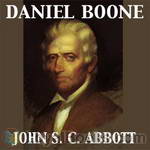 Daniel Boone
Daniel Boone
This is a detailed biography of the life and adventures of Daniel Boone. His accomplishments are brushed over in history classes these days and not given the recognition they deserve. This biography clearly paints a picture of the benevolent person of Daniel Boone as well as the achievements he made in furthering European settlement in America. | |
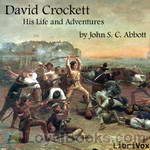 David Crockett: His Life and Adventures
David Crockett: His Life and Adventures
David "Davy" Crockett (August 17, 1786 – March 6, 1836) was a celebrated 19th century American folk hero, frontiersman, soldier and politician. He is commonly referred to in popular culture by the epithet “King of the Wild Frontier.” He represented Tennessee in the U.S. House of Representatives, served in the Texas Revolution, and died at the Battle of the Alamo. This narrative attempts faithfully to record the influences under which David Crockett was reared and the incidents of his wild and wondrous life... | |
 Empire of Russia from the Remotest Periods to the Present Time
Empire of Russia from the Remotest Periods to the Present Time
A history of Russia from 500 B.C. to 1855 A.D., written by John Stevens Cabot Abbott, the brother of Jacob Abbott. | |
By: John S. Jenkins (1818-1852) | |
|---|---|
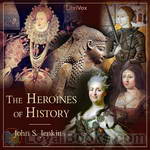 The Heroines of History
The Heroines of History
A look at some of the famous women in European history. Includes biographies on Cleopatra; Isabella of Castile; Joan of Arc; Maria Theresa; Josephine; Elizabeth of England; Mary of Scotland; Catherine of Russia; Marie Antoinette; and Madame Roland. Mr. Jenkins, whose name remains on the title-page of this volume, was prevented from finishing the work for a long time by sickness, and finally by death. The first chapter is from his pen, and the rest has been written according to his instructions by one whom he selected, and who has had access to works rare in this country, such as Monstrelet's Chronicles, Tooke's Life of Catherine II... | |
By: John S. Mosby (1833-1916) | |
|---|---|
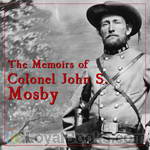 The Memoirs of Colonel John S. Mosby
The Memoirs of Colonel John S. Mosby
This is not a work of fiction! These are the actual memoirs of a legendary leader of partisans who bedeviled the Union army for years, almost within sight of the capitol. With only a few local men under command, John Singleton Mosby’s ability to strike fast and then melt away before an effective pursuit could be organized kept the Yankee forces awake and often snarled in knots. With daring feats like capturing a Yankee general out of his bed within his defended headquarters, Mosby made his name a synonym for guerrilla warfare... | |
By: John Salmond (1862-1924) | |
|---|---|
 Jurisprudence
Jurisprudence
"[This book] is written primarily for the use of those students of the law who are desirous of laying a scientific foundation for their legal education ; yet I hope that it will not be found destitute of interest by those lawyers whose academic studies lie behind them, but who have not wholly ceased to concern themselves with the theoretical and scientific aspects of the law. Further, a great part of what I have written is sufficiently free from the technicalities and details of the concrete legal system to serve the purposes of laymen" | |
By: John Stuart Mill (1806-1873) | |
|---|---|
 On Liberty
On Liberty
Published in 1859, On Liberty is a libertarian philosophical work by English philosopher John Stuart Mill that endorses his view on the importance of individuality for the constant progression and improvement of society. The work also supports economic and moral freedom, and openly criticizes the influence of social authority that in one way or another imposes a predefined set of acceptable attitudes and opinions. Highlighting issues including the incongruity between authority and liberty, the oppressive... | |
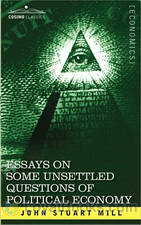 Essays on Some Unsettled Questions of Political Economy
Essays on Some Unsettled Questions of Political Economy
This is Mill’s first work on economics. It foreshadows his Political Economy which was the standard Anglo-American Economics textbook of the late 19th and early 20th centuries. Mill’s economic theory moved from free market capitalism, to government intervention within the precepts of Utilitarianism, and finally to Socialism. | |
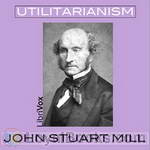 Utilitarianism
Utilitarianism
John Stuart Mill’s book Utilitarianism is one of the most influential and widely-read philosophical defenses of utilitarianism in ethics. The essay first appeared as a series of three articles published in Fraser’s Magazine in 1861; the articles were collected and reprinted as a single book in 1863. It went through four editions during Mill’s lifetime with minor additions and revisions. Although Mill includes discussions of utilitarian ethical principles in other works such as On Liberty and The Subjection of Women, Utilitarianism contains Mill’s only major discussion of the fundamental grounds for utilitarian ethical theory. | |
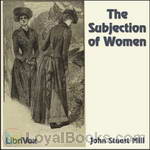 The Subjection of Women
The Subjection of Women
The Subjection of Women is the title of an essay written by John Stuart Mill in 1869, possibly jointly with his wife Harriet Taylor Mill, stating an argument in favor of equality between the sexes. It offers both detailed argumentation and passionate eloquence in opposition to the social and legal inequalities commonly imposed upon women by a patriarchal culture. Just as in “On Liberty,” Mill defends the emancipation of women on utilitarian grounds, convinced that the moral and intellectual advancement of women would result in greater happiness for everybody. | |
 Autobiography of John Stuart Mill
Autobiography of John Stuart Mill
John Stuart Mill (20 May 1806 – 8 May 1873), British philosopher, political economist, civil servant and Member of Parliament, was an influential liberal thinker of the 19th century. He was an exponent of utilitarianism, an ethical theory developed by Jeremy Bentham, although his conception of it was very different from Bentham's. He was a forceful proponent in the fight for government intervention in social reform. | |
 Three Essays on Religion
Three Essays on Religion
The Three Essays on Religion were written at different times during Mill's life, and only published after his death. The first two, 'Nature' and 'The Utility of Religion' date from the 1850s - the period between the publication of 'The Principles of Political Economy' and 'On Liberty'. The third longer essay, 'Theism' was written between 1868 and 1870. The three essays were published posthumously in 1874. | |
 Considerations on Representative Government
Considerations on Representative Government
Mill's volume was published in 1861 as an argument favoring this form of governance. Mill covers what forms of government work best, including when representative government is applicable and when not. He details appropriate functions of representative bodies and warns of problems to avoid. He distinguishes between true and false democracy. Other areas covered include how voting is carried out, the role of a second chamber in Parliament, and how an executive branch might function. | |
 Auguste Comte and Positivism
Auguste Comte and Positivism
Part 1 lays out the framework for Positivism as originated in France by Auguste Comte in his Cours de Philosophie Positive. Mill examines the tenets of Comte's movement and alerts us to defects. Part 2 concerns all Comte's writings except the Cours de Philosophie Positive. During Comte's later years he gave up reading newspapers and periodicals to keep his mind pure for higher study. He also became enamored of a certain woman who changed his view of life. Comte turned his philosophy into a religion, with morality the supreme guide. Mill finds that Comte learned to despise science and the intellect, instead substituting his frantic need for the regulation of change. | |
By: John T. (John Tinney) McCutcheon (1870-1949) | |
|---|---|
 In Africa Hunting Adventures in the Big Game Country
In Africa Hunting Adventures in the Big Game Country
| |
By: John T. Schlebecker | |
|---|---|
 Agricultural Implements and Machines in the Collection of the National Museum of History and Technology Smithsonian Studies in History and Technology, No. 17
Agricultural Implements and Machines in the Collection of the National Museum of History and Technology Smithsonian Studies in History and Technology, No. 17
| |
By: John Toland (1670-1722) | |
|---|---|
|
Pantheisticon: or, the Form Of Celebrating the Socratic-Society. Divided into Three Parts. Which Contain, I. The Morals and Axioms of the Pantheists; or the Brotherhood. II. Their Deity and Philosophy. III. Their Liberty, and a Law, neither deceiving, nor to be deceived. To which is prefix’d a Discourse upon the Antient and Modern Societies of the Learned, as also upon the Infinite and Eternal Universe. And subjoined, a short dissertation upon a Two-fold Philosophy of the Pantheists, that is to be followed; together with an Idea of the best and most accomplished Man... | |
By: John Tulloch (1823-1886) | |
|---|---|
 Rational Theology and Christian Philosophy volume 1
Rational Theology and Christian Philosophy volume 1
This work addresses the birth and development of a rationalist stream in the Christianity of England in the seventeenth century. In this volume, Tulloch focuses on five latitudinarian churchmen, examining their lives and thought. - Summary by Barry Ganong | |
By: John Victor Lacroix (1882-) | |
|---|---|
 Lameness of the Horse Veterinary Practitioners' Series, No. 1
Lameness of the Horse Veterinary Practitioners' Series, No. 1
| |
By: John W. Arctander (1849-1920) | |
|---|---|
 Apostle of Alaska: The Story of William Duncan of Metlakahtla
Apostle of Alaska: The Story of William Duncan of Metlakahtla
This is this story of William Duncan, an English missionary, who established a colony among the Tsimshian people of the Pacific Northwest. He worked there from 1856 until his death in 1918 at the age of 86. - Summary by Fritz | |
By: John Wesley Powell (1834-1902) | |
|---|---|
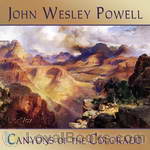 Canyons of the Colorado, or The exploration of the Colorado River and its Canyons
Canyons of the Colorado, or The exploration of the Colorado River and its Canyons
John Wesley Powell was a pioneer American explorer, ethnologist, and geologist in the 19th Century. In 1869 he set out to explore the Colorado and the Grand Canyon. He gathered nine men, four boats and food for ten months and set out from Green River, Wyoming, on May 24. Passing through dangerous rapids, the group passed down the Green River to its confluence with the Colorado River (then also known as the Grand River upriver from the junction), near present-day Moab, Utah. The expedition’s route... | |
By: John Wight (1866-1944) | |
|---|---|
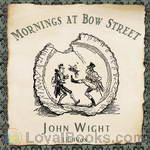 Mornings at Bow Street
Mornings at Bow Street
This is a collection of various articles found in Morning Herald columns. Some are found interesting, some may be hilarious! The 84 pieces of this book are actual reports throughout the 1870s newspaper written by the reporter, John Wight and Illustrated by George Cruikshank | |
By: John Williams Streeter (1841-1905) | |
|---|---|
 The Fat of the Land The Story of an American Farm
The Fat of the Land The Story of an American Farm
| |
By: John Wood | |
|---|---|
 Hardy Perennials and Old Fashioned Flowers Describing the Most Desirable Plants, for Borders, Rockeries, and Shrubberies.
Hardy Perennials and Old Fashioned Flowers Describing the Most Desirable Plants, for Borders, Rockeries, and Shrubberies.
| |
By: John Wycliffe (1328-1384) | |
|---|---|
 Ecclesiastes (Wycliffe, 1395)
Ecclesiastes (Wycliffe, 1395)
“… an alemaunde tre schal floure, a locuste schal be maad fat, and capparis schal be distried; for a man schal go in to the hous of his euerlastyngnesse…” – Eccl. xii, 5 (see Note below).Traditionally composed by Solomon sometime around 950-970 BCE but dated on linguistic evidence somewhere in the third century, this meditation on the futility of mankind’s striving can bring comfort to those of firm or fragile faith, or of no faith at all. The text used here is a revision of Wycliffe’s original translation, made by his follower John Purvey in the mid-1390s... | |
By: Johnannes Jorgensen (1866-1956) | |
|---|---|
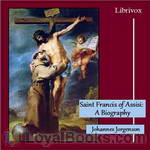 Saint Francis of Assisi: A Biography
Saint Francis of Assisi: A Biography
Born to a prosperous cloth merchant of Assisi, Francis (1182-1226) lived the typically high-spirited life of a wealthy young man of his day, which included fighting as a soldier. In 1205, while away at war, he experienced a vision that beckoned him return to Assisi, where he soon lost his taste for the worldly life and began to live a life of evangelical poverty in imitation of Jesus Christ. He embarked upon a pilgrimage to Rome, where he begged for alms alongside the poor at St. Peter's Basilica... | |
By: Jon Shimabukuro | |
|---|---|
 Worker Classification: Employee Status Under the National Labor Relations Act, the Fair Labor Standards Act, and the ABC Test
Worker Classification: Employee Status Under the National Labor Relations Act, the Fair Labor Standards Act, and the ABC Test
A brief summary of the standards for classifying workers as either employees or independent contractors under various federal labor laws and common-law tests. | |
By: Jonathan Edwards (1703-1758) | |
|---|---|
 Select Sermons of Jonathan Edwards
Select Sermons of Jonathan Edwards
Jonathan Edwards was a colonial American Congregational preacher, theologian, and missionary to Native Americans. Edwards “is widely acknowledged to be America’s most important and original philosophical theologian.” His work is very broad in scope, but he is often associated with his defense of Calvinist theology, the metaphysics of theological determinism, and the Puritan heritage. His famous sermon “Sinners in the Hands of an Angry God,” emphasized the just wrath of God against sin and contrasted it with the provision of God for salvation; the intensity of his preaching sometimes resulted in members of the audience fainting, swooning, and other more obtrusive reactions... | |
By: Jonathan Swift (1667-1745) | |
|---|---|
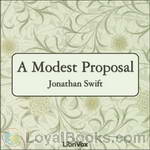 A Modest Proposal
A Modest Proposal
A satirical essay written by one of the most renowned satirists, Jonathan Swift, A Modest Proposal expresses the author’s exasperation with the ill treatment of impoverished Irish citizens as a result of English exploitation and social inertia. Furthermore, Swift ventilates the severity of Ireland’s political incompetence, the tyrannical English policies, the callous attitudes of the wealthy, and the destitution faced by the Irish people. Focusing on numerous aspects of society including government exploitation, reckless greed, hypocrisy, apathy, and prejudice, the essay successfully exemplifies Swift’s satirical skills... | |
By: Joseph Banks (1743-1820) | |
|---|---|
 Endeavour Journal of Sir Joseph Banks from 25 August 1768-12 July 1771
Endeavour Journal of Sir Joseph Banks from 25 August 1768-12 July 1771
In this Journal, Joseph Banks records almost daily observations of the journey of the ship the Endeavour on the first of James Cook’s voyages to the Pacific during the years 1768-1771. There are also more detailed accounts of the events, people, flora, fauna and geology of the places where they landed. They landed at Brazil, Tahiti, New Zealand, Australia, Batavia, Cape Town and St. Helena. Joseph Banks was one of the naturalists on the Endeavour, appointed by the Royal Society. The joint Royal Society, Royal Navy journey of the Endeavour was overtly a scientific expedition with the stated purpose of observing the transit of Venus from Tahiti... | |
By: Joseph Bell (1837-1911) | |
|---|---|
 A Manual of the Operations of Surgery For the Use of Senior Students, House Surgeons, and Junior Practitioners
A Manual of the Operations of Surgery For the Use of Senior Students, House Surgeons, and Junior Practitioners
| |
By: Joseph Conrad (1857-1924) | |
|---|---|
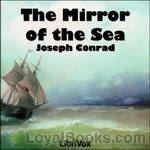 The Mirror of the Sea
The Mirror of the Sea
The Mirror of the Sea is a collection of autobiographical essays first published in various magazines 1904-6. Conrad early in his life earned his bread as a Master Mariner in sailing ships. In his Author’s Note to this work, Conrad states,”Beyond the line of the sea horizon the world for me did not exist….Within these pages I make a full confession not of my sins but of my emotions. It is the best tribute my piety can offer to the ultimate shapers of my character, convictions, and, in a sense, destiny—to the imperishable sea, to the ships that are no more, and to the simple men who have had their day.” | |